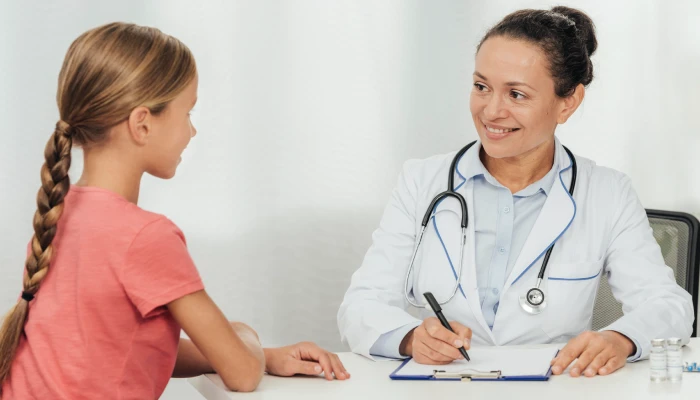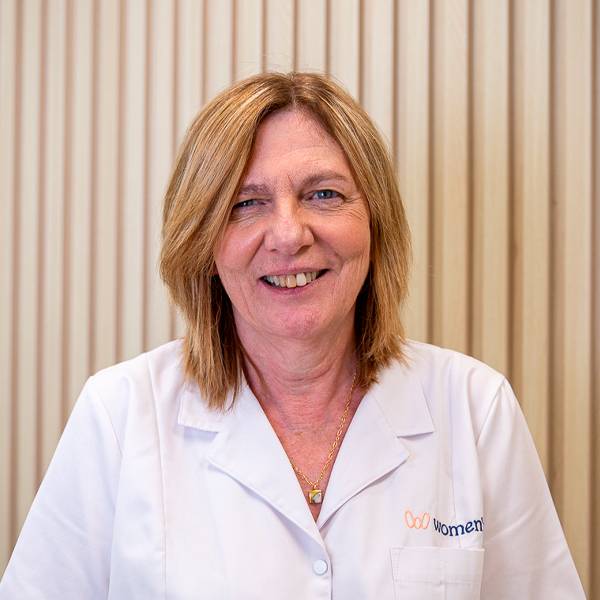If you are parents of a girl, you may be wondering what the best age is to bring your child to the gynecologist for the first time.
Although there is no exact age, it may be wise to make your first appointment as early as 12 or 13 years old. By this age, many girls have begun puberty, and it may be a good time to check that their development is on track.
The first gynecological visits are usually preventive, but they are also useful for your daughter to build a relationship of trust with the gynecologist and to answer questions about menstruation and intimate hygiene.
If you are a young woman and have started or are planning to start having sexual relations, it is also very important to make an appointment with your gynecologist.
In addition to a complete gynecological exam, we will advise you on contraceptive methods and the prevention of sexually transmitted diseases. During your visit, you will have the opportunity to ask your gynecologist about anything that worries you or that interests you.
And if you’ve been experiencing discomfort or pain with your period since you were a teenager, if it’s irregular or too heavy, or if you think something is wrong, don’t wait to make an appointment.
Tell us what’s bothering you: talking about what you are feeling in your body is the first step to finding the solutions that work best for you and your personal situation.
Common reasons for seeing with a pediatrician and adolescent gynecologist
The causes or reasons for seeing a pediatrician and adolescent gynecologist vary by age. The most common are the following:
Vulvar and vulvovaginal infections
Infections can be caused by poor hygiene.
Before puberty, the labia minora are not fully developed and do not fully protect the vulva and vagina from external germs.
If you experience any discomfort, pain, irritation or burning during urination, do not wait, make an appointment with your gynecologist and we will perform the tests that will allow us to provide the most effective and appropriate treatment.
Labial coalescence
Labial coalescence is the sticking together of the labia minora. It is a common gynecological condition in which all or part of the entrance to the vagina is closed.
If you experience vaginal discomfort, difficulty urinating, increased vaginal discharge or foul odor, you should make an appointment with your gynecologist.
Early puberty
Puberty is considered precocious when the body begins to change into that of an adult woman before the age of 8.
If the development of breasts, the appearance of pubic or underarm hair, or the onset of menstruation is too early, you should take your daughter to a gynecologist.
Late puberty
Late puberty is when sexual development has not begun by the age of 13.
This late development is probably natural, meaning that the body matures a little later than usual.
However, late puberty can also have other causes. Therefore, to avoid future complications, it is advisable to make an appointment with your gynecologist.
Absence of menstruation
If you are over 15 years old and have never had your period, it is advisable to make an appointment with your gynecologist.
We will perform the appropriate tests to rule out problems that may be related to weight or hormonal imbalances, among other things.
If you are already menstruating but your period is missing for 2 cycles, it is also advisable to see a gynecologist.
It is most likely nothing serious, but it is always a good idea to find out the cause and get the most appropriate treatment.
Irregular periods
Most women menstruate once a month, but the menstrual cycle can be shorter or longer. It usually lasts 28 days (between 21 and 35 days), but every woman is different, and this is not always the case.
It is very common for teenagers to have irregular periods in the early years, after which menstruation becomes more regular.
If you are worried or it is bothering you, it is important to see your gynecologist. Sometimes stress, exercise, or a poor diet can make your periods irregular.
Very heavy periods
Periods can last from 3 to 7 days, and the amount of blood each period produces can vary from woman to woman.
If the bleeding seems excessive, do not wait, and make an appointment with your gynecologist. We will perform the necessary tests and, if needed, initiate the most appropriate treatment.
Pain during menstruation
Menstruation can cause discomfort before, during and after your period, but it should not cause pain that prevents you from enjoying your daily life.
Disabling pain is not normal. If your period is keeping you from going to school or college, hanging out with friends, or playing sports, make an appointment to see your gynecologist. We will evaluate the cause of the pain and treat it in the most appropriate way.
First sexual intercourse
If you have already had sexual intercourse or think you will have it soon, make an appointment with your gynecologist.
In addition to checking your general health, you can ask us anything that concerns you during the visit.
If you want, we can discuss how to prevent sexually transmitted diseases and which contraceptives are most effective and recommended for you.
Pain during sexual intercourse
Pain during sexual intercourse is not normal.
If you experience pain, make an appointment with your gynecologist. We will investigate the causes and provide the most appropriate and effective treatments, if needed.
FAQ
- How should I prepare for the medical exam?
No special preparation is necessary, but it is advisable to visit the gynecologist when you are not menstruating.
- Will I have a pelvic exam on the first visit?
In general, a pelvic exam is not necessary at the first visit, although this will depend on the reason for your visit.
- Is the gynecological exam painful?
The exam can be uncomfortable, but it does not have to be painful.
- How often should I see a gynecologist?
It is recommended that you see a gynecologist once a year.
However, if you have any doubts, discomfort, pain during your period, or changes in your breasts, you should see your gynecologist as soon as possible.
- Can I go to the gynecologist by myself?
You can go alone or with a companion if you prefer. The important thing is that you feel comfortable, can talk calmly, and can explain to your doctor what is bothering you.
- Will my gynecologist tell my parents what we discussed during the consultation?
No. What is explained and discussed during the consultation is confidential. We can only share it with others with your permission.


